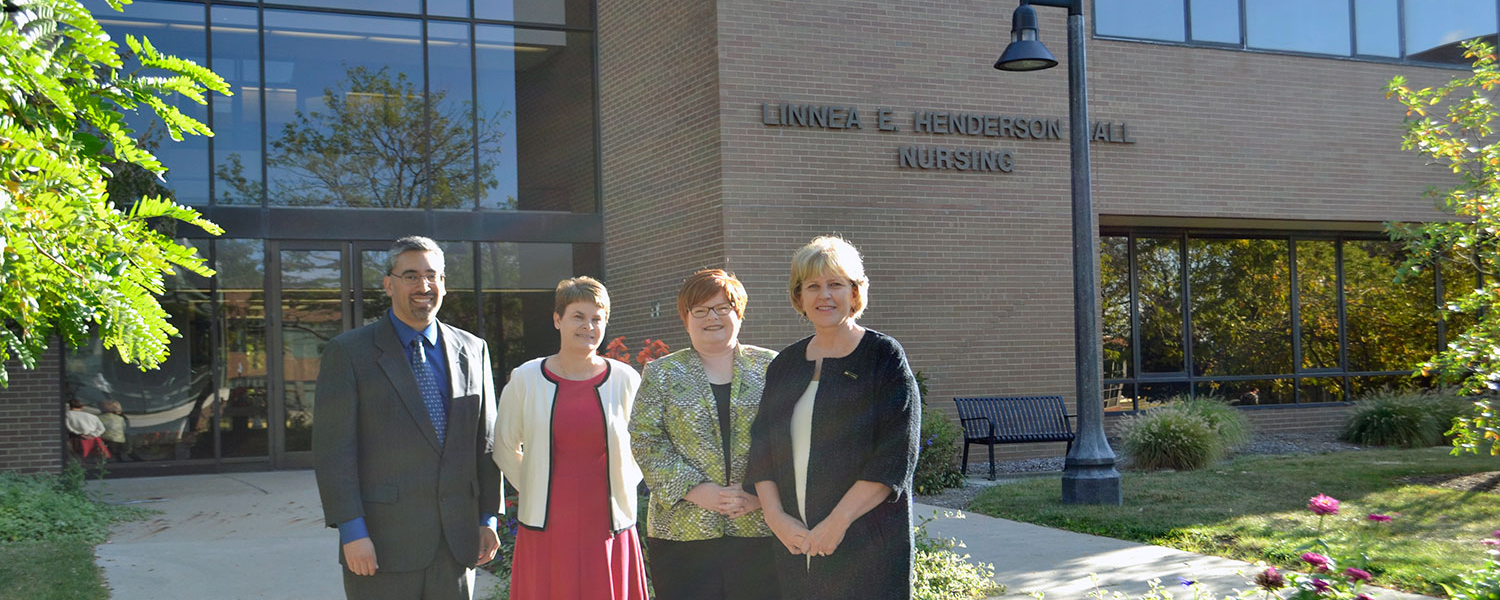For the first time, 91˛Öżâ’s College of Nursing has been awarded the Health Resources and Services Administration (HRSA) Behavioral Health Workforce Education and Training (BHWET) Program grant. The grant will fund an estimated $1.1 million over four years as faculty work to expand the behavioral health workforce in rural and underserved areas, and develop the workforce with team-based integrated care competencies. Project key personnel include Wendy Umberger, Ph.D., RN, PMHCNS-BC, associate dean for graduate studies; Andrea Warner Stidham, Ph.D., MSN, RN, assistant professor; Kimberly Williams, DSN, RN, associate professor and psychiatric nurse practitioner; and Mark Arredondo, M.D., medical director of the Portage County Health District, professor at Northeast Ohio Medical University and practicing physician at Summa Health System.
“Many times, patients who seek treatment in primary care settings have underlying symptoms related to mental health or psychiatric illnesses,” Dr. Umberger says. “Primary care doctors and primary care nurse practitioners may lack the expertise, knowledge and experience to treat those patients effectively. This grant is part of a country-wide movement to integrate behavioral health assessment and treatment into primary care settings.”
The grant will fund BHWET stipends for psychiatric mental health nurse practitioner (PMHNP) students enrolled in Master of Science in Nursing (MSN) and Doctor of Nursing Practice (DNP) programs at 91˛Öżâ. Ten $10,000 stipends will be given to masters students this year, 12 will be awarded the second year, 14 in the third year and 16 in the final year. One $28,000 DNP stipend will be given to a student next year, and two stipends will be given out in the third and fourth years.
Students will be placed in integrated care settings during the last six months of their educational programs and commit to working in rural, vulnerable or underserved areas after graduation. Project personnel will educate and train students, along with the interprofessional team members at the practicum sites, to use team-based, integrated care competencies. Regular site visits will allow project personnel to ensure students and site staff have positive experiences. Challenges and issues that may arise will be addressed through problem-solving and teambuilding exercises.
Project personnel also will develop a low-cost, high-impact intervention to link interprofessional specialist teams with multiple primary care clinicians through teleECHO™ clinics. The online trainings will be listed as a Project ECHO® Hub, an initiative that began at the University of New Mexico. Currently, there are four locations in Ohio that house Project ECHO Hubs, but this will be the first housed in an Ohio college of nursing. Dr. Warner Stidham and Dr. Arredondo will take the lead in designing trainings focused on “Team Building for Successful Integrated Care.”
“The completed Project ECHO Hub will provide free training, knowledge and skills to all primary care settings in the United States,” Dr. Umberger says. “This resource will be especially useful for staff in rural primary care offices who may not have connections to state-of-the-art information.”
Throughout the course of the four years, the team’s objectives will revolve around providing integrated training to students and clinical site staff in order to grow the workforce of psychiatric mental health nurse practitioners in Northeast Ohio who have had experience and exposure to integrated care. Additionally, the team would like to expand their pool of integrated care locations by adding three new sites each year that will collaborate with project personnel.

